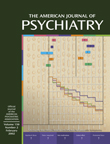Limited Disclosure of Sexual Abuse in Children Whose Experiences Were Documented by Videotape
Abstract
OBJECTIVE: The authors describe obstacles to children’s disclosure of their sexual abuse experiences. METHOD: Ten children’s descriptions of 102 incidents of sexual abuse and the process of disclosing these incidents during police interviews were studied. Children’s self-reports of the abuse were compared to videotapes of the incidents made by the lone perpetrator. RESULTS: There was a significant tendency among the children to deny or belittle their experiences. Some children simply did not want to disclose their experiences, some had difficulties remembering them, and one child lacked adequate concepts to understand and describe them. CONCLUSIONS: Failure by children to disclose their experiences of sexual abuse might have diverse explanations. Professionals will most likely never be able to identify all cases of sexual abuse on the basis of children’s narratives.



